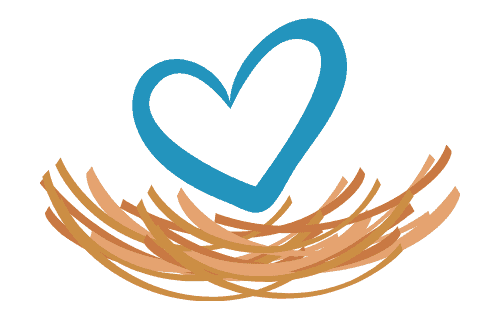It’s miserable when your gut is unhappy. Find out which foods to eat to heal leaky gut, and which foods to avoid for a leaky gut diet that will help you heal your gut so you can start feeling better fast.
If you’re reading this, you’re probably concerned about leaky gut syndrome. You’ve come to the right place. If you want more in-depth information on the causes and symptoms of leaky gut pop over and read this post on “What is Leaky Gut?“
If you don’t have time to check it out, here’s a quick summary to get you started.
What Is Leaky Gut?
Your intestines are permeable, meaning they were designed to let fluids and nutrients seep out to enter your bloodstream. When you eat and drink, this permeability allows your body to use the foods you eat for energy, fluids and important nutrients.
Leaky gut syndrome (or increased intestinal permeability) occurs when the tight junctions of your intestinal walls become loose. These loose spaces allow harmful substances from your intestines to pass into your bloodstream. Substances like undigested food particles, bacteria, and toxins, blech.
This increased permeability and its accompanying gut dysbiosis can cause all kinds of health problems from acne to autoimmune diseases and everything in between.

How Do I Know if I have Leaky Gut?
One thing is for certain, even though you may be suffering from leaky gut symptoms, the mainstream medical community doesn’t actually recognize leaky gut as a medical diagnosis.
Doctors do recognize that intestinal permeability is a problem that occurs alongside many diseases, however, they disagree if it’s a just symptom or an underlying cause of chronic disease.
But…many alternative practitioners believe leaky gut syndrome exists and is linked to various conditions, including autoimmune diseases like Crohn’s disease, celiac disease, and IBS, as well as issues like chronic fatigue, migraines, food sensitivities, skin conditions, brain fog, and depression.
How to Heal Leaky Gut
Since leaky gut syndrome isn’t an official medical diagnosis, there is no official medically recommended treatment.
But there is good news…you can do many things on your own to improve your digestive health and start to heal leaky gut.
Leaky Gut Treatment
Treating your leaky gut involves several key components. If you’re experiencing leaky gut symptoms, it’s important to address all of the following areas:
- Eat the Right Foods: Eat a diet rich in foods that calm your gut, and foods that aid in the growth of beneficial gut bacteria.
- Avoid Harmful Foods: Remove foods known to cause allergies, intestinal inflammation, and foods known to disrupt the balance of good bacteria and yeasts.
- Add Supplements known to help heal leaky gut.
Best Foods for a Leaky Gut Diet
The best treatment for a leaky gut includes a leaky gut diet made up of a broad range of foods that are both easy to digest and helpful to repair your gut lining.

Vegetables
Vegetables should be lightly steamed to aid in easy digestion. The fiber in these choices also acts as a prebiotic which feeds your healthy gut bacteria.
- Broccoli
- Cauliflower
- Asparagus
- Zucchini
- Brussels sprouts
- Greens: spinach, chard, kale, dandelion, watercress, endive
- Artichokes
- Cabbage
- Cucumbers
- Mushrooms
Starchy Vegetables
These starchy vegetables are high in fiber, which is a good thing. Eat these in moderation only. Most of your vegetables should be of the non-starchy variety.
- Yams and sweet potatoes
- Squash
- Parsnips and turnips
- Carrots
- Beets
- Pumpkin
Fruit
- Coconut
- Berries
- Kiwi
- Pineapple
- Citrus
- Apples
- Pears

Proteins and Omega-3 Sources
Choose proteins with high levels of omega-3 essential fatty acids which help reduce inflammation. When possible choose lean grass-fed or organic meats. Stay away from processed meats.
- Salmon, tuna, herring, mackerel, anchovies
- Pasture-raised eggs
- Beef, bison, chicken, lamb, turkey
- Chia seeds
- Flax seeds
- Bone Broth
- Fish oil
Fermented Foods
Fermented and cultured foods help add good bacteria (probiotics) to your intestinal tract.
- Sauerkraut
- Kimchi
- Kombucha
- Miso
- Tempeh
Healthy Fats
- Olive oil
- Avocado oil
- Coconut oil
- Clarified butter
- Grass-fed butter
- Avocados
- Olives
Gluten-Free Grains
- Brown and white rice
- Gluten free oats
- Buckwheat
- Amaranth
- Quinoa
Cultured Dairy Products
- Greek yogurt
- Kefir
- Cultured buttermilk
Beverages
- Bone Broth
- Coconut Milk
- Kombucha
- Teas: dandelion root, marshmallow root, licorice root tea, peppermint
- Water – make sure you’re drinking more water

Foods to Avoid to Heal Leaky Gut
Avoiding foods known to cause inflammation is equally important to your leaky gut diet.
Inflammation can disrupt the balance of healthy bacteria in your gut. The following foods are known to trigger either inflammation or other digestive issues like bloating and diarrhea.
- Artificial sweeteners: aspartame, sucralose, saccharin
- Uncultured dairy products
- Grains
- Gluten
- Refined sugar
- Alcohol
- Processed, packaged, boxed foods
- Processed and deli meats
- Legumes
- Nightshade foods: eggplant, tomatoes, potatoes, bell peppers.
Leaky Gut Supplements
Along with the proper diet, leaky gut supplements can also help to heal your gut and rebalance your gut bacteria.
Before adding supplements, always make sure you’re addressing your diet first.
- Probiotic capsules
- Collagen peptides
- Resistant starch: potato starch, inulin, green bananas
- Gelatin powder
- L-glutamine
How Long does it Take to Cure Leaky Gut?
So let’s say you’re eating the right gut health foods, eliminating the foods that cause gut issues and helping to heal your gut with good supplements. Just how long does it take to heal leaky gut anyway?
The answer really depends on how severe your leaky gut symptoms are.

The good news is your gut does heal quickly. A Harvard study published in the journal Nature discovered changes in gut bacteria just three days after an improvement in diet.
Most professionals agree that if you don’t have any significant chronic conditions or food sensitivities, you should expect to heal your gut in 2-12 weeks.
Folks with moderate symptoms can expect healing to take from 3-6 months.
Leaky Gut Diet Summary
Food really does matter.
If you are struggling with leaky gut symptoms, eat foods that promote the growth of healthy gut bacteria. Stay away from foods that cause inflammation and gut distress.
Aside from diet, try taking probiotics and other gut health supplements.
Caring for your overall health can also have a massive effect on healing your body. Practice self care to reduce your stress levels, get more sleep and exercise regularly.
And be patient…it probably took a lifetime of a bad diet and unhealthy habits to get here.
Just think how great you’ll feel in a few months when your gut has been healed. I’ll raise a glass of kombucha to that!
Want To Remember This Leaky Gut Diet Plan Information? I’d Love It If You’d Pin It To Your Favorite Healthy Living Pinterest Board And Pass It On!

